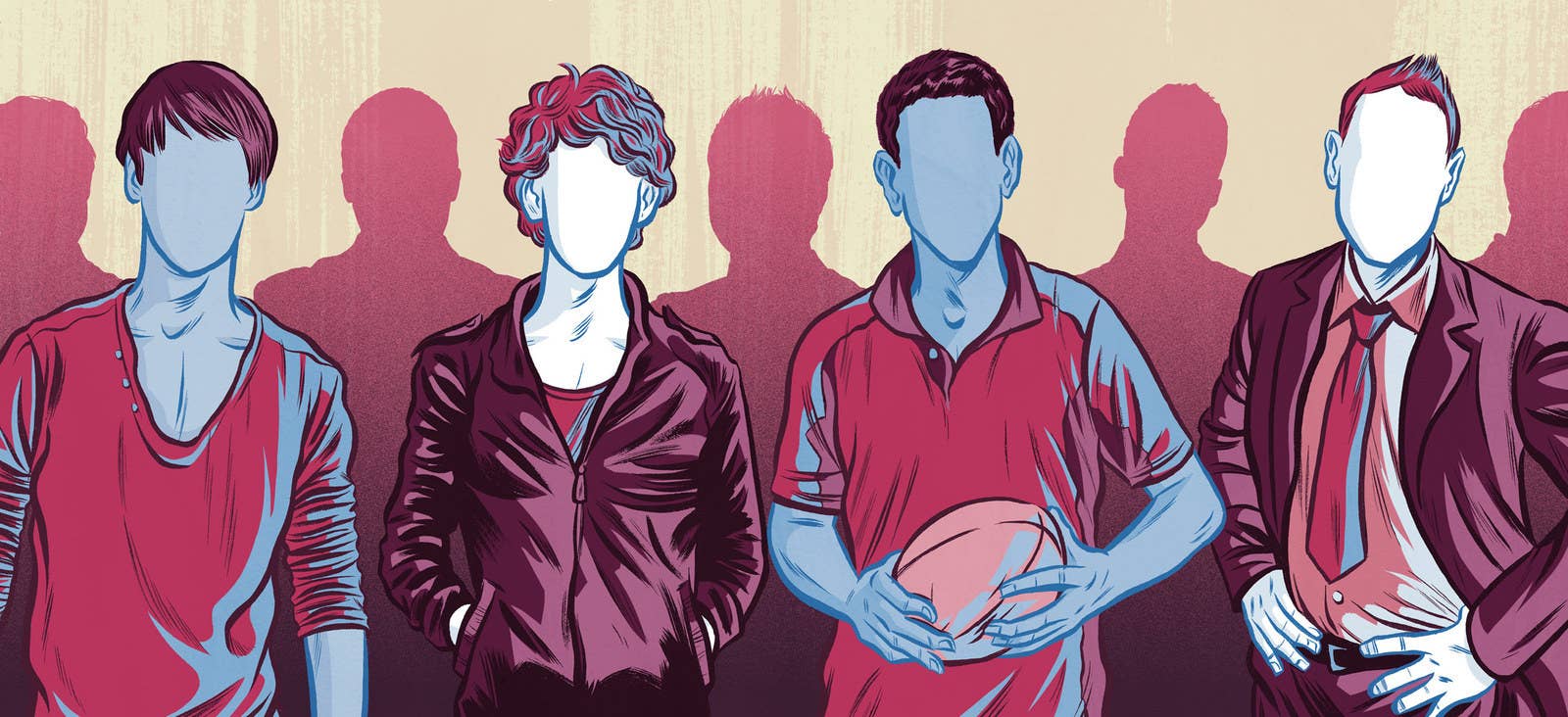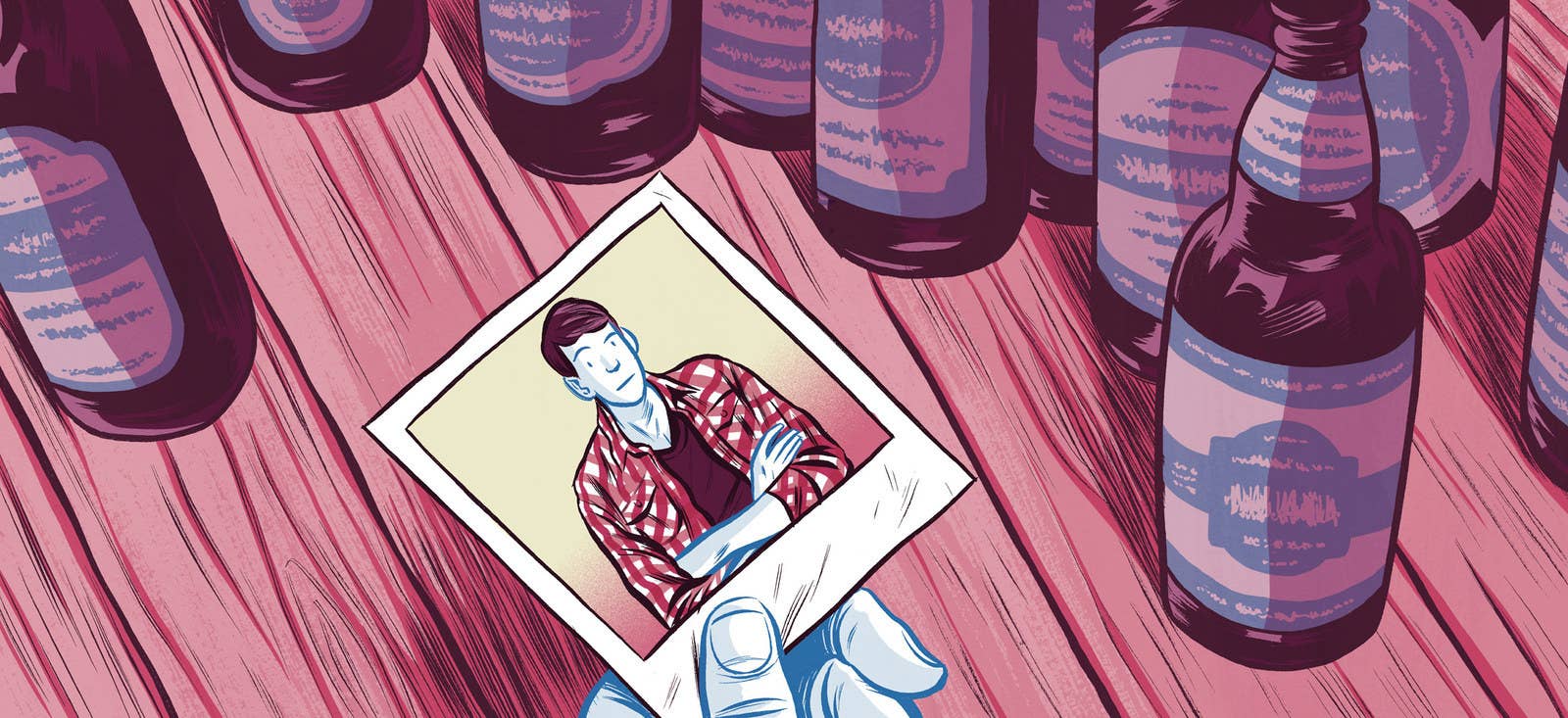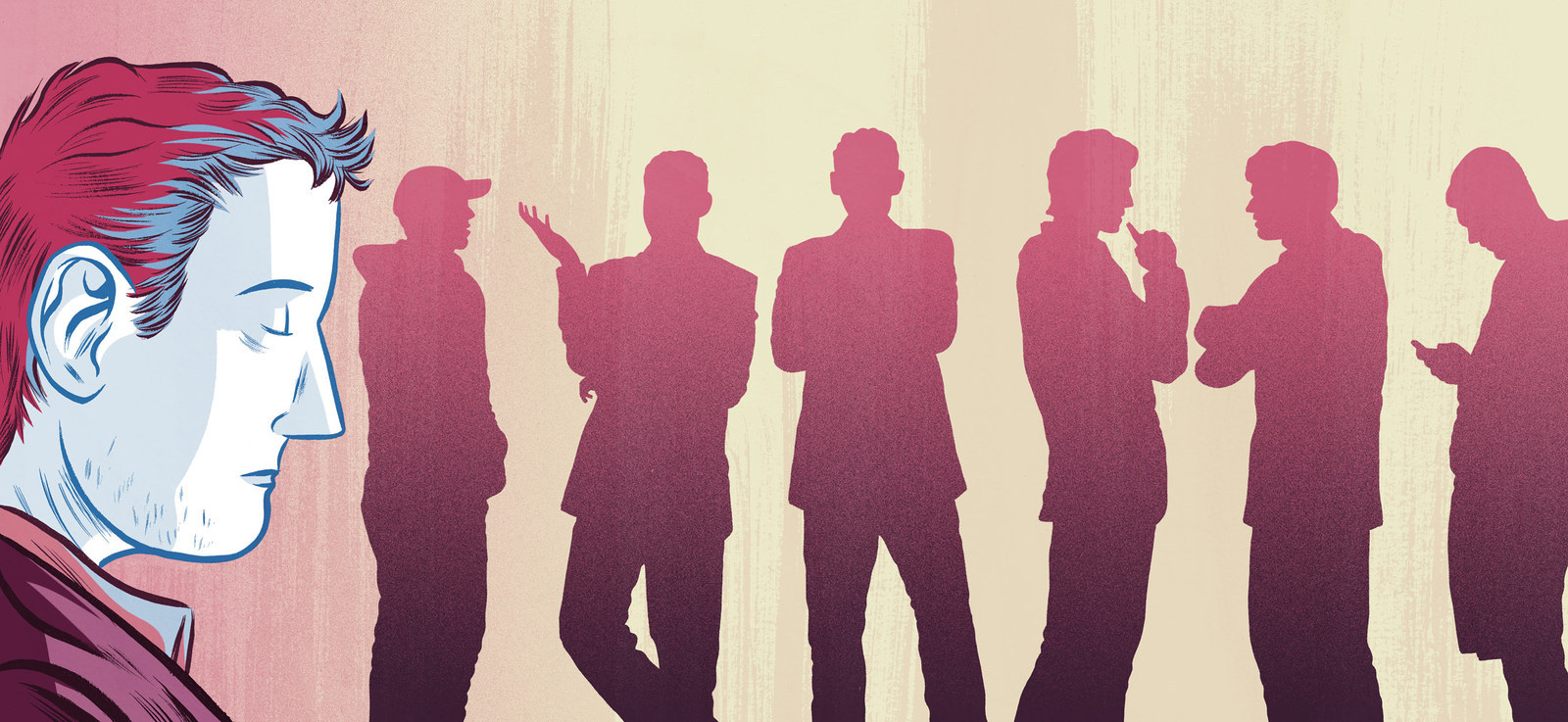
I was never very good at being a boy: I found boyhood full of things I didn’t like. I would cry at other children’s parties – a problem with my ears meant that loud noises hurt – and I spent as much time as possible trying to get out of doing sport. When, as older sisters are wont to do, my sister put make-up on me, I’d sneak back later to put it on again, trying to work out what she’d done. By all standards, I was terrible at being a boy.
The next step for the boy, as movies will often tell you, is to become a man. This will usually happen on a fishing trip with a father figure – someone will explain how “a man needs to provide” or “feelings are for sissies”. I guess my family weren’t big fishers.
No, the night I stopped being a boy was the night I got into a car with two strangers. I was 13 years old and I was sexually assaulted.
My rush into the “responsible” world started on a night where all control was taken away from me. It was a night that told me I was worthless and meaningless, and for years I continued to live by those ideas, chanted and repeated like a mantra.
I told only one friend that night – she came to pick me up and take me home. Her cheeks were covered in freckles, and her tears made them shine the whole way back. I went to her house the next day, but we didn’t talk much about anything. I didn’t say another word about it until I was 19.
For those six years I taught myself that I could never be wanted. I obviously wasn’t a man, I was something less than, and at the age of discovering girls, my conclusion was that no girl could ever want me. It’s an insecurity that has affected all my relationships: Subconsciously, I could never get over the fact that someone liked me. Even now, that voice still arises. When relationships end and girlfriends move on, there’s a fire in one part of my head – a fire I try to douse with rationality and logic – that tells me it makes sense they found someone else. They must have found themselves a real man.
I don’t believe in real men, but my reactionary head – my amygdala – does. It doesn’t really know what a real man is, it just knows I’m not one. I’m a victim, out of control; men are not.
When I was 18, I decided I was going to be a real man. After Christmas dinner with my mum and an old friend, I found a photo of myself taken earlier in the day that I liked. In a red check shirt, one I still wear, sitting in a restaurant, I looked calm, handsome, and somehow masculine. That, I decided, was who I was going to be.

To that end, I lied to people and drank a lot. I hopped on and off buses between cities, trying to find parties. I didn’t treat women kindly. I was hepped up on my own fake idea of manhood and I hated myself desperately. I couldn’t be the retiring boy I had been because that person was worthless and meaningless; I couldn’t be the boisterous brute because that wasn’t who I was.
The summer I turned 19, I started a relationship with my best friend, and it was instantly important. My struggles with my identity were a strain, and then after the first month of being together, I had to move back from England to Abu Dhabi, where my mum was living. It was a perfect set-up for a tough relationship. We talked constantly and fought a lot. One evening, after she hung up on a Skype call, something in me broke and I typed out what had happened to me – and pressed "send".
I wish I could say that telling someone was a freeing feeling, that I soared out of the apartment window high on honesty and never hit the ground. What it really started was years of forced introspection, of looking back at my life. At my girlfriend’s urging, I started therapy at Survivors UK – the only counselling service in London dedicated to male survivors. Week after week I talked to a counsellor, and each session became a weekly moment of respite. I was trying to learn who I was, cutting away years of what to me felt like failure.
After about a year, I decided to try group therapy. There, I got to talk to other men who were just as confused about what it meant to be a man. I got to better understand myself through the experiences of others, and discuss how we’d all been affected by our pasts. I got to look around and think, Well, these are real men, aren’t they, brain? These are real men with real pain but who I like and enjoy my time with, so I must be one too.
I went on a spree of telling my closest friends and in the process created a support network that has saved my life and made me whole countless times. So when an old friend came to visit, I resolved to tell him too.
A few nights into his stay, we went to a Vietnamese restaurant on Old Kent Road. He ordered 15 Budweisers for the four of us: me and my friend, my girlfriend at the time and her friend. As the conversation waned he pushed us to get more drinks in. At some point, unable to handle it, I snapped and ran out of the restaurant. I was halfway down the road when he came outside. In the street, confused by the booze and the purple neon lighting of the restaurant sign, I told him what had happened to me and what I was dealing with. He told me to get over it. He told me to stop seeing the therapist because that was bringing this up. He told me to forget. Later that night, in bed with my girlfriend, I lay on my back and told her I’d never wanted to die more than I did right then. It was one of the hardest nights of my life, but my therapy group was there to support me.
I don’t blame that old friend for his reaction. I think he’d been told his whole life that men don’t talk– they do. They don’t discuss problems; they fight them out.
I’m not clear on exactly when I made a choice to be the person I am right now, to try my hardest to ignore the deafening insecurities that follow me, the ones that can still often chant "worthless, meaningless" over and over, only now and then taking breaks to explain why no woman will ever want me, that I’ll never be a real man. It was gradual, but always based on a determination to not be defined by the worst points in my life. And more than that, a decision to not be defined by things I never chose. I never know how much to pin on one event, whether my other mental struggles are environmental or genetic, what kind of person I would be now if I didn’t have this experience with the worst of what humans can do.

I like to think that understanding struggle rounds off a human life in a way little else can. In the end – or at least, the end of this essay – I don't have a conclusion. I know that the world still has this ridiculous idea of masculinity. An idea that harms all of us, from the men it pressures and coerces to the partners and friends who suffer with its results. It's an idea of power that no doubt informed my attackers and pushed me away from the support I could have received earlier. The lesson, not that there needs to be one, is that silence is never powerful. Talking, softly, often is.
